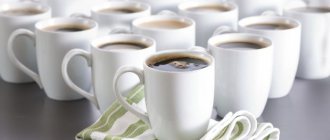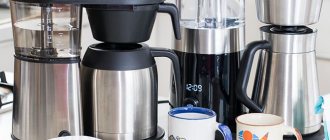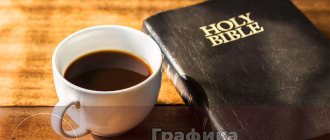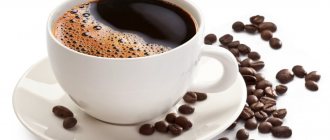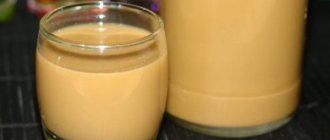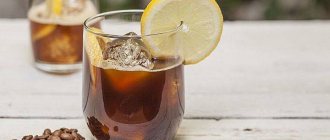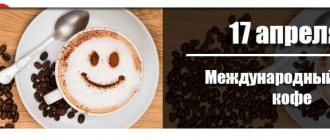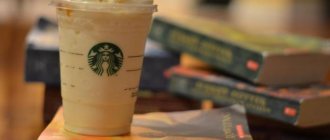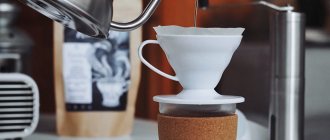Fasting is a time of abstaining from eating food of animal origin and spiritual cleansing of a person (visiting temples and reading prayers, refraining from quarrels and irritability). This period is accompanied by a refusal of all entertainment: visiting cinemas, watching entertainment programs, listening to cheerful music, going on visits, etc.
It begins on Monday, seven weeks before Easter and ends on Saturday, before this great holiday. In 2021 it lasts from March 15 to May 1 (inclusive).
What can you eat during Lent: list of products
Plant foods and dishes made from them are ideal for a Lenten table. In addition, cereals make up an important part of the diet. Legumes, nuts, mushrooms, herbs, flour products and some types of sweets will help saturate the body. During Lent you can add to your menu:
- Cereal products
- buckwheat, rice, semolina, oatmeal, barley and wheat groats. Porridge contains a lot of carbohydrates, so this food quickly fills you up. In addition, all cereals contain a set of microelements and vitamins. - Fruits and vegetables.
In this category, any fruit is acceptable without restrictions. You can prepare dishes from potatoes, beets, turnips, carrots, pumpkins, cabbage, corn, cucumbers, onions, garlic, and tomatoes. Sweet fruits can easily replace dessert. Bananas, oranges, apples, pears, pomegranates are very tasty and healthy. - Mushrooms
are considered a satisfying food, quite capable of replacing meat. During the fasting period, you can eat oyster mushrooms, champignons, dry and frozen forest mushrooms. These products contain important amino acids, vitamins and minerals. - Legumes.
In stores you can easily find beans, peas, lentils, and chickpeas. These products are good because they contain a lot of vegetable protein. - Nuts.
Any are acceptable: peanuts, hazelnuts, almonds, cashews. They can be supplemented with pumpkin and sunflower seeds. These products give you a feeling of satiety and contain many substances beneficial to the body. - Dried fruits.
By the beginning of Lent, you can stock up on prunes, dried apricots, raisins, figs, and dates. Compote made from dried fruits will be an excellent vitamin-rich dessert. Nuts and dried fruits can also be added to porridge and salads. - Pasta.
All of them quickly give you a feeling of fullness. Preference should be given to those products that do not contain egg yolk. - Bread and pastries.
This same group of products can include bread made from rye flour, crispbread, biscuits, and crackers. Baking should be without eggs and milk.
Vegetable oil (all types) and herbs will be an excellent addition to any dish. An important part of the menu during Lent consists of pickles and fermented foods. Kozinaki, halva, and jam are acceptable as sweets. However, their intake during fasting should still be limited, since these products are considered a delicacy.
Is it possible to drink tea during fasting?
Lent is a special time in the life of every believer. This is a period when you need to adhere to strict food restrictions, give up bad food and other habits, and devote time to spiritual cleansing and self-improvement. There are quite a few rules regarding how one should fast. And worldly people do not always know which foods can be included in a lean diet and which cannot. For example, many are interested in the question of whether it is possible to drink tea during fasting. After all, many simply cannot refuse this tonic drink. After all, Lent lasts almost a month and a half and it is very difficult not to break it by giving at least a little slack, even if it concerns the most common hot drink.
Drinking tea during fasting - can you drink it or not?
According to the church canon, lean food should not contain animal fats and generally be of animal origin. Therefore, during this period, it is advisable to exclude fish, meat, butter, milk, etc. products from your daily menu. There are also a number of restrictions regarding drinks. In particular, milk-based drinks, alcohol and milk-based cocktails are prohibited. However, this ban does not apply to tea. It is a simple infusion from the leaves of a bush plant and has nothing to do with animal food.
Moreover, drinking tea during fasting is even recommended. This drink contains a huge amount of biologically active substances and vitamins. And their benefits will be felt by the body even more than usual, since we are deprived of some nutrients due to dietary restrictions. Thus, rich and thick pu-erh tea has a cleansing effect and helps maintain a feeling of fullness after eating a low-calorie lean meal. Green tea improves metabolism, which may be somewhat disrupted due to changes in the usual menu. Fruit and herbal teas saturate cells with antioxidants and keep you alert.
Perhaps the most controversial issue is the possibility of drinking tea on days of dry eating, when foods cannot be subjected to heat treatment. And you can only eat fresh vegetables and fruits, previously baked bread, nuts, sauerkraut, etc. However, tea, unlike coffee that is brewed, does not belong to the prohibited category of products. It is considered an infusion - the leaves are poured with hot water after it has boiled. Therefore, even on days of dry eating, you can safely drink tea.
Is it possible to drink tea on the first day of fasting?
Quite often, believers ask not only whether it is possible to drink tea during fasting, but also whether it is permissible to drink this drink at the very beginning of fasting. After all, as you know, the first week of Lent, and therefore the first day, is the strictest. Of course, if your willpower and health allow, then at this time you should arrange a fasting day for yourself and choose plain water to drink. However, the ban on drinking tea these days is not canonical, which means you can easily afford a cup of this hot drink without risking breaking your fast.
What can you drink tea with during Lent?
Another important issue that is definitely worth mentioning is that you can drink tea with sugar or other sweets during fasting. There are also some nuances here.
- You can drink tea with granulated sugar, honey or artificial sweetener.
- But you should still limit the amount of sweet tea to 1-2 cups a day so as not to spoil yourself. Otherwise, the meaning of the post is lost.
- Sweets such as dried fruits, candied nuts, kozinaki made from seeds, baked goods without butter and milk, jam, and marmalade based on agar-agar are considered lean.
What drinks can you drink?
A drink like tea is perfect for fasting. You can use black and green varieties. In addition, tea is prepared based on fruits and herbs:
- ginger;
- rosehip;
- raspberries;
- lemon balm;
- mint;
- oregano;
- St. John's wort.
Among hot drinks, sbiten based on honey and spices is also popular. You can make fruit smoothies with coconut milk. Fruit drinks, jelly, compotes, and homemade lemonade allowed during Lent are tasty and healthy.
What products are prohibited?
During fasting, you should not eat products obtained from animals. These include:
- all types of meat;
- bird;
- fish (sometimes allowed);
- eggs;
- dairy products;
- animal fats;
In addition, you should not eat dishes where these products may be included as additional ingredients. Now stores sell lean cheese, mayonnaise, and rye bread. Such products can be purchased as a replacement for regular ones.
Also prohibited: alcohol, white bread and chocolates.
Who is allowed not to fast?
Fasting may not apply to a special category of persons. These primarily include pregnant and lactating women, as well as children. If for some reason the expectant mother decides to abstain from animal food, she needs to ask the priest for a blessing.
The same applies in matters with children. Particularly zealous parents want their children to avoid eating dairy and meat products. But for some children the latter are a necessary necessity. In order not to harm your own children, it is better to first consult with your confessor. For any post, you also need to seek permission from the clergy.
In addition to children and pregnant women, people who have any chronic diseases are not allowed to fast. Fasting is not imposed on cancer patients and people undergoing treatment for acute respiratory diseases.
The fasting regulations must be observed with all strictness, including dry eating.
The charter was written in the 5th century in the monastery of St. Savva the Sanctified in Sinai, for monks who fasted strictly and practically did not leave the walls of the monastery. Therefore, some aspects of the charter on fasting cause us bewilderment. For example, it mentions dates and other fruits exotic for our latitudes, olive oil and other products that are not so easy to get here. The Church accepted this charter and began to use it, despite the fact that the instructions about products blessed during Lent are not suitable for our latitudes.
The second point is that the charter was written for monastics. It was not designed for lay people who lead active lifestyles, commute to work every day, work hard, and live in our cold climate where caloric expenditure is much higher than in the subtropics. Therefore, fasting as the Typikon prescribes is very, very difficult.
My personal opinion: the most important thing is to exclude meat products during Lent, and for everything else, take a blessing from your priest. The Lord does not expect us to faint from hunger or, when we go to work, to be unable to fulfill our direct responsibilities. He expects from us the purification of the soul.
Source
Other restrictions and rules of conduct during Lent
For most people, fasting just means giving up your favorite foods. However, the very essence of these holy days lies elsewhere. If believing Christians set the goal only of giving up their favorite food, they will not be able to acquire salvation, just as the Pharisee, who proudly exalted himself over the humble publican, was once unable to acquire it.
The main task of any fast is repentance, through which salvation certainly comes. And the second component of our salvation is sacrifice, which consists primarily of abstinence. But this abstinence may not necessarily concern your favorite foods. Lately, clergy have been urging us to stay away from informational food, most of which cannot benefit the soul. Therefore, Orthodox Christians need to give up their favorite TV shows and games for at least forty days.
Lent 2021 is a time of repentance and correction, which no person should under any circumstances miss.
When does Lent begin in 2021?
Orthodox Christians observe several fasts throughout the year. Lent is the longest and strictest. Its start is not tied to a specific calendar date. Every year Lent begins on a different date. Believers can easily determine the occurrence of this event by looking at the church calendar. But the duration of Lent is always the same - 48 days.
In 2021, Lent begins on Monday 15 March and ends on Saturday 1 May.
The beginning of Lent is preceded by Forgiveness Sunday (Maslenitsa). The strictest days of fasting occur during Holy Week (from April 26 to May 1). At this time, Christians should spend more time in prayer, remember the suffering of Jesus, honor and glorify him. The soul must be cleansed by repentance; Orthodox Christians need to pacify their passions and emotions. Lent ends with Easter - the feast of the Resurrection of Christ; on this day believers break their fast.
On a note! Over the centuries-old history, the traditions of Great Lent have undergone significant changes. In early Christianity, the Resurrection of Christ was celebrated weekly on Fridays (the day of Jesus' death on the cross). The modern custom has evolved over centuries. The duration of the fast and the degree of its severity changed. The tradition of a 40-day fast was finally formed in the 4th century. Since then, this time has also been called Pentecost.

